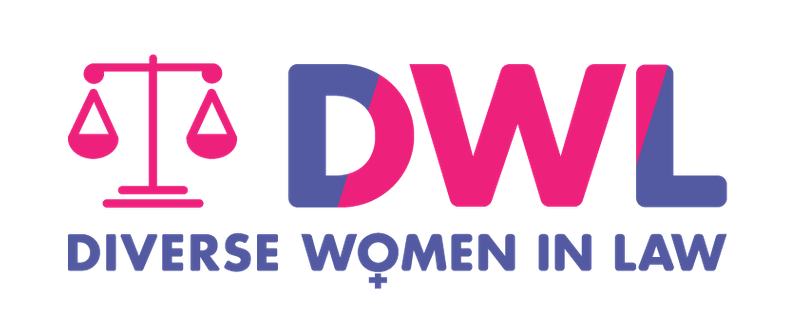Our Mission
“I am very proud and feel very privileged to be the Chairperson of DWL. Diversity, in all its forms, is a source of strength and pride. The legal profession has come a long way in recognising the valuable contribution that women from diverse backgrounds make to the profession, but there is still a long way to go yet. DWL is committed to supporting, mentoring and promoting Diverse Women to enter the profession, remain in the profession, and rise to the highest ranks of the profession. We know that you walk with us on that journey.”
How do we define Diverse Women?
DWL aims to support those who self-identify as women, non binary and gender diverse through all stages of their legal studies and differing careers and who also self-identify as being from one or more of the following underrepresented backgrounds:
• culturally and linguistically diverse persons;
• Aboriginal or Torres Strait Islander persons;
• LGBTQI+ persons;
• people living with a disability;
• people who are or have experienced socioeconomic disadvantage; and
• people with caring responsibilities,
(together, Diverse Women).
We champion diversity in the law
Founded in 2019 by Keerthi Ravi, Diverse Women in Law (DWL), seeks to empower Diverse Women by providing meaningful structural enablers, such as mentoring, networking, and awareness-raising initiatives, that proactively enlists industry stakeholder engagement.
Our initiatives promote the empowerment of Diverse Women lawyers through networking, targeted mentoring and professional development opportunities in partnership with industry stakeholders. Some of our key initiative's include:
law student engagement through university roadshows
providing networking opportunities such as the IP&STEM Networking Event
our targeted networking and mentoring programs for law students and lawyers
professional development and job application assistance
DWL is focused on improving diversity at all stages of the talent pipeline including entry level, mid-level career lawyers and senior members of the legal profession. To read about our initiatives for senior Diverse Women, click here.
To read about our past events, click here.
“The DWL ‘Stand Out in an Interview’ event was truly excellent, and hands down one of the most helpful DWL events I’ve attended thus far. What stood out to me most about this event was its practicality, similar to the previous cover letter and resume workshops. I also appreciated that we were hearing insights directly from recruitment at firms we have applied to”
We will be the change that we want to see.
Diversity purports an unparalleled competitive advantage for the legal profession, as organisations are statistically proven to generate higher profits, engage and retain their staff whilst formulating innovative solutions. While representation of women in law has increased considerably over the last two decades, with women comprising 54% of the profession, Diverse Women remain largely underrepresented.
In the Law Society of New South Wales report, ‘Diversity and Inclusion in the Legal Profession: The Business Case’, it states:
‘Diversity and inclusion are of increasing importance for the legal profession. Australian society is culturally and socially diverse and this is reflected in both the demographics of legal practitioners and their clients.’
Yet there is a disparity between this representation of Australian society and the legal profession. For example:
In 2018, only 1.2% of practising certificate holders in New South Wales identified as Aboriginal or Torres Strait Islander (0.7% across Australia).
Less than 2% of barristers identify as Asian-Australian.
Only two law firms were recognised as ‘gold employers’ in the 2019 Australian Workplace Equality Index that looks specifically at LGBTQ workplace inclusion
Statistics of LGBTQ+ representation in law is scarce
25% of law graduates identify as being from an Asian background, but this drops to less than 8% at partner level; .6% of the bar; and 0.8% of the judiciary.
Despite Australia’s diverse makeup, Diverse Women remain underrepresented in the legal profession, with a lack of statistics around their representation in the workforce. Read out our policy and research work here.
“Times have changed, and we now see a focus on inclusivity within the legal profession. To me, this means supporting diverse employees and mentoring other Diverse Women entering the law, so they know they are not alone. It is for this reason that I am excited to be involved in Diverse Women in Law. I believe that through DWL, we can not only empower young lawyers, we can also help foster an increasingly inclusive profession that embraces all diversity”
Be a DWL Ally
There is presently no organisation in New South Wales with a sole focus on raising the profile of Diverse Women in the early stages of their legal career.
DWL recognises the importance of supportive voices outside of Diverse Women to effect meaningful dialogue and change. DWL is proud to feature allies who champion DWL’s mission amongst its growing membership (DWL Ally / DWL Allies). DWL Allies have supported DWL through various means such as providing:
Corporate sponsorship
Mentorship to Diverse Women
In-kind contributions such as event hosting
Speaking engagements at DWL events
Collaborating on DWL projects
To become a DWL Ally, DWL invites you to complete the membership form and contact us if you would like to find out about the opportunities available for you to assist in furthering DWL’s mission.




